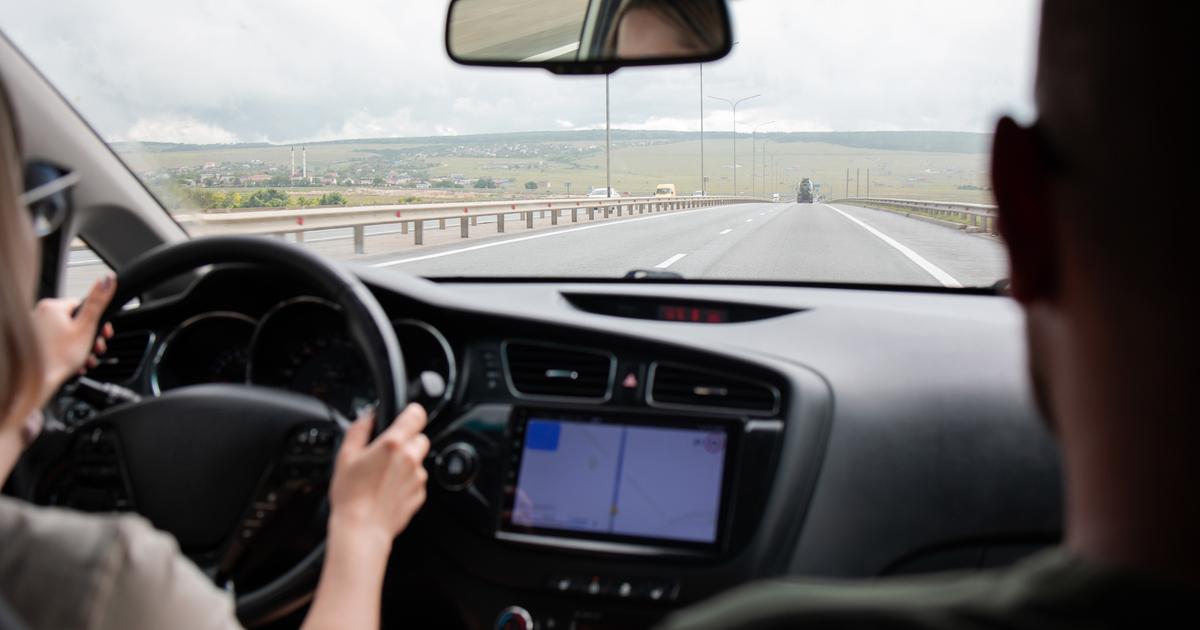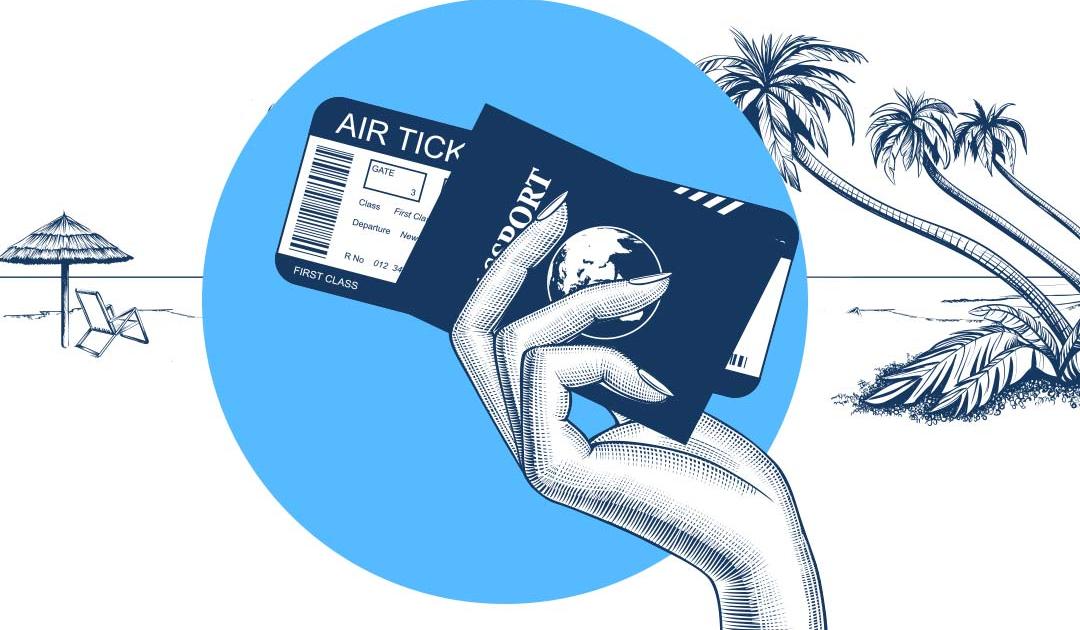In view of the falling incidence figures across Europe, many countries are hoping for a new start in tourism.
What rules apply to tourists, what vacationers need to know now.
Berlin - Anyone who asks friends and acquaintances after all the hard Corona months what they want most after a possible end to the pandemic will often receive three answers: Finally, meet friends and family again, do sports - and vacation.
Preparations are in progress.
In the face of declining incidences, many European countries are preparing for a possible restart of tourism.
But under what conditions is a vacation in Austria, Italy or Croatia even possible?
Which test obligations apply on site, when will possible relaxations come into force and may holidaymakers have to be in quarantine after returning to Germany?
The answers can be found in the large overview of the most popular German travel destinations, from Denmark, France or Italy to Croatia to Spain and Turkey.
DENMARK
Shops in Denmark have long been open again. Cafes, restaurants and bars are allowed to serve customers again - inside, however, only if the guests can prove a negative corona test, a complete vaccination or a survived infection via the app. The gym is also open again. The number of new infections is stable, the seven-day incidence has been below 100 for weeks. Denmark is the only EU country to permanently refrain from using the vaccine from Astrazeneca, and the drug from Johnson & Johnson has now also been canceled.
Germans who have been fully vaccinated against Covid-19 and many other people from EU and Schengen countries - including tourists - have been allowed to return to Denmark since May 1st.
In contrast to other travelers, they do not have to show any negative corona tests or reasons for entry such as visiting partners, and they do not have to test and quarantine after arrival.
The condition is that the country of the travelers is at least an "orange state", so the corona situation there is not too bad and there are no worrying variants of the corona virus rampant.
Germany is currently considered orange.
FRANCE
The neighboring country eased the measures a little on Monday.
People are now allowed to move more than ten kilometers away from their homes for no good reason - travel within the country is now possible again.
There is a nightly curfew from 7 p.m., which is to be postponed to 9 p.m. from May 19.
Then outside areas of restaurants as well as shops and cultural institutions should be allowed to reopen.
As of Wednesday evening, around a quarter of the total population in the country had received at least one corona vaccination.
Most recently, almost 224 new corona infections per 100,000 inhabitants were counted nationwide in one week.
The number has been falling for weeks.
When entering France, a negative PCR test must be presented, which must not be older than 72 hours.
Travelers must also fill out a declaration on which they assure, for example, that they have no Covid-19 symptoms.
According to the Interior Ministry, travelers from Europe are allowed to enter France without “compelling reasons”.
Privileges for vaccinated people do not currently apply.
GREECE
Since Monday, cafes, bars and taverns have been allowed to open their outdoor areas in Greece under certain conditions - for all guests, regardless of whether they have been vaccinated or not.
However, the catering closes at 10.45 p.m., after 11.00 p.m. there is an evening exit ban.
Travel within Greece is not possible without restrictions - but this requirement is to be lifted on May 15th.
From a German perspective, Greece is currently still a risk area, but the infection situation is easing.
Visitors must enter their data online before entering the country.
A complete vaccination or a PCR test that is not more than 72 hours old must then be presented upon entry.
Fully vaccinated here means that the second vaccination was at least 14 days ago.
There is no longer an obligation to quarantine.
However, tourists should always find out about their exact travel destination.
For example, a local lockdown was recently imposed again on the island of Kalimnos due to the high number of cases.
ITALY
The Mediterranean country has recently been on a gradual easing path. Where the corona numbers are moderate, restaurants and bars are also allowed to serve outside at tables in the evening. After 10 p.m. there is still an exit ban. Museums and cinemas in the so-called yellow zones are already open. From June 1st, people should be able to sit inside again in pubs. Italy is targeting June 2nd for the official start of the summer season. It is not yet entirely clear how the regulations for immigrants, including those who have been vaccinated, will look like in June. The corona numbers have recently fallen steadily. More than 25 percent of the population have been vaccinated against corona at least once.
In principle, holidays in Italy are possible, but the country still requires a quarantine of five days upon entry.
In addition, multiple tests apply - with a PCR test or a rapid antigen test before and after entry.
This regulation runs until mid-May.
Then a national “Green Vaccination Pass” will be introduced so that people can travel freely within the country.
CROATIA
In Croatia, hotels and restaurants are allowed to receive guests outside.
Conditions apply.
It is compulsory to wear a mask in public indoor areas and outside wherever a distance of 1.5 meters cannot be maintained.
By May 3, 17.5 percent of the population had received a primary vaccination.
Those who meet the entry requirements can go on vacation in Croatia.
To enter the country, Germans need either a negative PCR test that is not older than 72 hours, a negative antibody test that is not older than 48 hours, confirmation that they have survived Covid-19, or proof of a complete vaccination (The second vaccination must be at least 14 days ago. There are no further test requirements during the stay. Privileges for vaccinated persons are only given upon entry.
AUSTRIA
On May 19th, restaurants, hotels, stages and sports facilities are allowed to reopen.
Access tests are provided as a protective measure.
Events are allowed outside with up to 3000 people and inside with up to 1500 people.
Almost a third of residents aged 16 and over have already received at least one dose of vaccine.
The seven-day incidence of 140 last is on the same level as in Germany.
With the opening steps, the quarantine for vacationers from Germany should also fall.
Vaccinated, tested and recovered from Covid-19 are allowed into the country.
The government plans to stop people from having to show tests three weeks after their first vaccination.
Nevertheless, from a German perspective, Austria is still a risk area.
A test and at least five days of quarantine are due on the return journey.
PORTUGAL
The former pandemic hotspot Portugal has the lowest infection rates in Europe after Iceland and together with Finland. On Saturday, the state of emergency corona was no longer extended for the first time in around five and a half months. Restaurants, cafés and bars as well as cinemas, theaters and other cultural and leisure facilities have since been allowed to stay open until 10.30 p.m. on weekends. So far, there has been a very early curfew on weekends across Portugal, which started at 1 p.m. In addition, among other easing measures, the land border with Spain was reopened.
Unnecessary tourist trips from countries with a 14-day incidence over 150, including Germany, are still not permitted.
In the country with 10.3 million inhabitants, almost 3.5 million vaccine doses have already been administered.
There are not yet any advantages for those who have been vaccinated or recovered in Portugal.
SWITZERLAND
Anyone flying to Switzerland must present a negative corona test that is no older than 72 hours.
If you arrive by car, bus or train, you don't need that.
Only travelers from risk areas have to be in quarantine.
Germany is not one of them, except for Saxony and Thuringia.
Hotels are open, as are museums, shops, theaters, cinemas and zoos and amusement parks.
Eating and drinking is allowed on restaurant terraces.
There are maximum numbers for visitors, distance rules and mask requirements apply everywhere.
There are no curfews.
There are no special concessions for vaccinated people.
Despite the opening steps, the reported numbers of infections are now falling.
The 14-day incidence was most recently around 289 new infections per 100,000 inhabitants, after 315 a week earlier.
Around eleven percent of the population was fully vaccinated.
SPAIN
The seven-day incidence is significantly lower than in Germany, most recently it was only a good 87. In some holiday regions such as Valencia (around 17) or the Balearic Islands (just under 28) with Mallorca, the situation is even more relaxed. In the various regions, some strict restrictions still applied on Thursday, but almost all of them come to an end on the weekend with the end of the six-month corona emergency. Several regions meanwhile want to maintain the night-time lockdown. In addition, the mask requirement should also continue to apply outdoors for the time being.
Entry to Spain from all EU and Schengen-associated countries is generally possible.
However, the obligation to test for entry from a risk area from abroad (including Germany) still exists.
Almost 12.4 million citizens - a good 26 percent of all Spaniards - have already received at least the first dose of vaccine, of which more than five million are fully vaccinated.
However, there are not yet any privileges for those who have been vaccinated or recovered in Spain.
TURKEY
There is still a lockdown in Turkey until May 17: only shops for daily needs are open, people are only allowed to go outside for important errands.
Tourists are exempt from these exit restrictions and can move freely.
The number of new infections in the country every day remains at a high level.
In the tourist provinces of Antalya, Mugla and Izmir, the seven-day incidence was around 200 cases per 100,000 inhabitants in the past few weeks.
Around 17 percent of the population have received at least one dose of vaccine so far, and employees in the tourism sector are given preference.
When entering Turkey, a negative PCR test must be presented, which must not be older than 72 hours.
ENTRY TO GERMANY
Of the countries listed, Estonia, France, Lithuania, the Netherlands, Poland, Turkey and Cyprus are currently classified by Germany as high-incidence areas, the other states as risk areas.
According to the Federal Foreign Office, travelers returning from risk areas must generally go into a ten-day quarantine and register online before arriving in Germany.
After five days, the quarantine can be ended prematurely with a negative corona test.
For the return journey from high-incidence areas, additional stricter rules apply: In this case, travelers must prove upon entry that they are not infected with the coronavirus, for example with a negative test result.
This proof must not be older than 48 hours.
(dpa / utz)
List of rubric lists: © via www.imago-images.de














